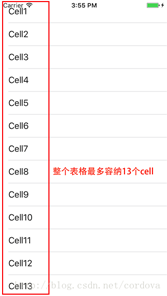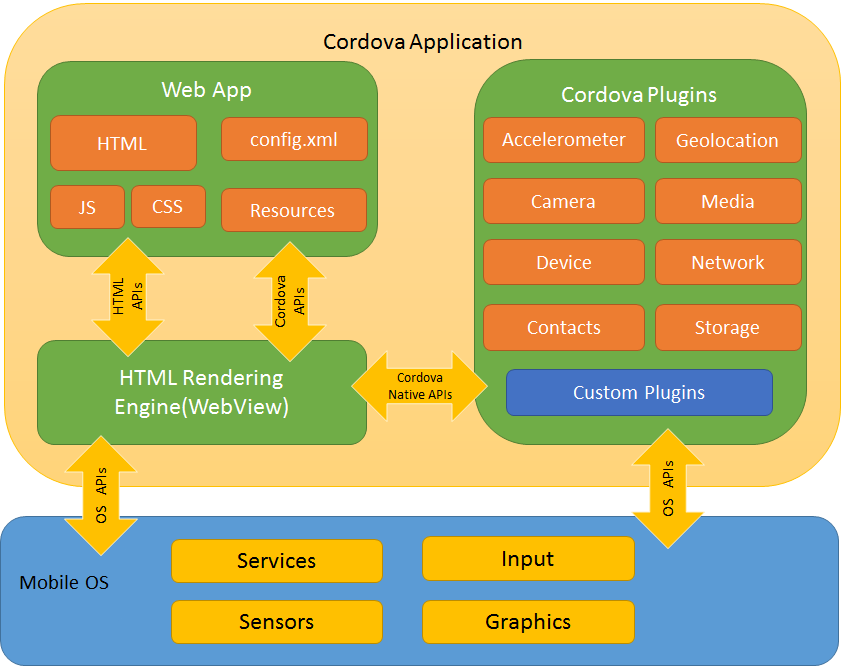詳解ios中自定義cell,自定義UITableViewCell
編輯:IOS開發綜合
通過繼承UITableViewCell來自定義cell
1、創建一個空的項目、命名:
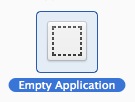

2、創建一個UITableViewController 並且同時創建xib:
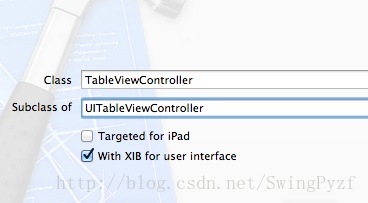
3、設置AppDelegate.m中window的根控制器為剛剛創建的TableViewController:
- (BOOL)application:(UIApplication *)application didFinishLaunchingWithOptions:(NSDictionary *)launchOptions
{
self.window = [[UIWindow alloc] initWithFrame:[[UIScreen mainScreen] bounds]];
TableViewController *tableViewController = [[[TableViewController alloc] init] autorelease]; //自動釋放
//設置根控制器
self.window.rootViewController = tableViewController;
[self.window makeKeyAndVisible];
return YES;
}
4、創建自定義的UITableViewCell:
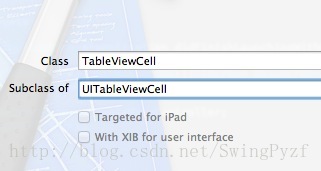
5、創建自定義cell的xib 拖放需要的控件
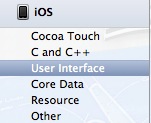 選擇User Interface。
選擇User Interface。
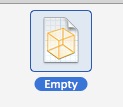 創建空的xib。
創建空的xib。
 拖入Cell控件。
拖入Cell控件。
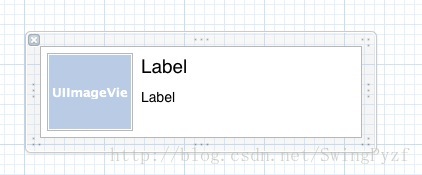 完成自定義的cell控件。
完成自定義的cell控件。
 設置cell控件的Identfier。
設置cell控件的Identfier。
 綁定Cell類並且將控件的輸出口關聯到TableViewCell.h文件中。
綁定Cell類並且將控件的輸出口關聯到TableViewCell.h文件中。
6、對TableViewController類編碼,在委托方法中設置自定義的Cell:
#import "TableViewController.h"
#import "TableViewCell.h"
@interface TableViewController (){
NSMutableArray *tableData; //表格數據
}
@end
@implementation TableViewController
- (id)initWithStyle:(UITableViewStyle)style
{
self = [super initWithStyle:style];
if (self) {
// Custom initialization
}
return self;
}
- (void)viewDidLoad
{
[super viewDidLoad];
//初始化表格數據
tableData = [[NSMutableArray alloc] init];
for (int i = 0; i< 10; i++) {
[tableData addObject:[NSString stringWithFormat:@"MyCellDemon%i",i]];
}
//設置row的高度為自定義cell的高度
self.tableView.rowHeight = 90;
}
- (void)didReceiveMemoryWarning
{
[super didReceiveMemoryWarning];
}
#pragma mark - Table view data source
- (NSInteger)numberOfSectionsInTableView:(UITableView *)tableView
{
#warning Potentially incomplete method implementation.
return 1;
}
- (NSInteger)tableView:(UITableView *)tableView numberOfRowsInSection:(NSInteger)section
{
#warning Incomplete method implementation.
return [tableData count];
}
- (UITableViewCell *)tableView:(UITableView *)tableView cellForRowAtIndexPath:(NSIndexPath *)indexPath
{
//指定cellIdentifier為自定義的cell
static NSString *CellIdentifier = @"TableViewCell";
//自定義cell類
TableViewCell *cell = [tableView dequeueReusableCellWithIdentifier:CellIdentifier];
if (cell == nil) {
//通過xib的名稱加載自定義的cell
cell = [[[NSBundle mainBundle] loadNibNamed:@"TableViewCell" owner:self options:nil] lastObject];
}
//添加測試數據
cell.titleLabel.text = [tableData objectAtIndex:indexPath.row];
cell.content.text = @"這是一些測試數據";
//測試圖片
cell.iamge.image = [UIImage imageNamed:@"testImage.jpg"];
return cell;
}
#pragma mark - Table view delegate
- (void)tableView:(UITableView *)tableView didSelectRowAtIndexPath:(NSIndexPath *)indexPath
{
}
@end
最終效果:
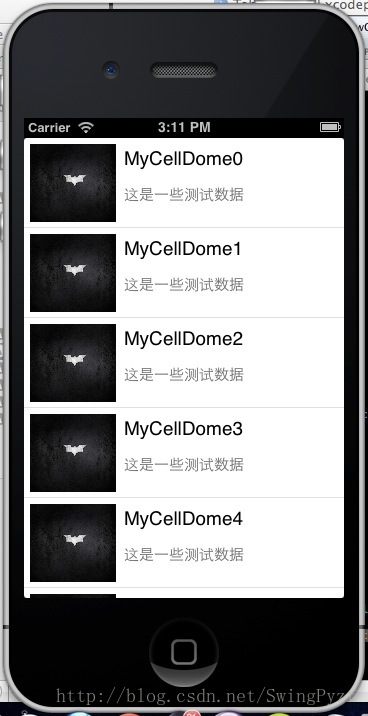
以上就是本文的全部內容,希望對大家的學習有所幫助,也希望大家多多支持本站。
相關文章
+
